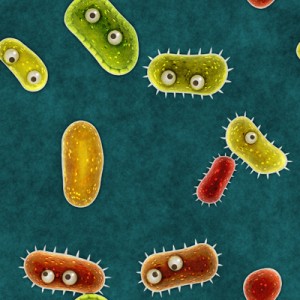Is it possible to have a completely chemical-free pool?

Here at Online Pool Chemicals, you’ll know that we’re committed to providing simple, sanitary solutions for pool owners across the world.
What’s more, sourcing eco-friendly, sustainable products is one of our top priorities – ensuring that your pool stays safe for the long term without adversely affecting the local ecosystem.
However, you may also have heard some manufacturers boast about providing chemical-free pool solutions and we wanted to check those claims out – while casting aside the fact that all things in the world, whether water, mineral or living organisms, consist of chemical compounds. But that’s just us being picky.
Is it possible to have a completely chemical-free pool? We don’t think so. Here’s why:
Your pool really does need cleaning
If anyone tells you that you don’t need to do anything to your pool, they’re wrong. And possibly very lazy. You can put in all the hard graft you want, cleaning the area and scooping free unwarranted leaves, but without treatment of some kind your pool will become a hotbed of bacterial life – just like any other pond or lake.
Also, it’s essential not to forget the many contaminants that can be introduced to a wet area by swimmers of all ages – Water Conditioning and Purification Magazine estimates that the average bather will introduce 0.14 of residual faeces into a pool. That’s about the weight of a small pea. If that’s not persuaded you that your pool needs decontaminating then you may as well click away now.
There are some chemical-free solutions
Some pool owners do use chlorine and bromine-free options for their pool such as ozone, copper and silver ions and using UV light technology. These techniques are used to destroy germs and contaminants.
However, they don’t do all the work
It’s a shame, but while these sanitisers do work in the short term, they don’t give pool owners the continual reliability or the long-term protection that you get from chlorine-based solutions. Ozone, for instance, is a particularly short-lived treatment while copper and silver ions do work, but are known to take a while to take effect.
As a result, if you’re looking to protect swimmers in your pool and keep them safe from the risk from infection, using treatments like ozone and UV can work, but not completely. You’ll need to supplement them with other standard treatments. Simply put, you won’t get the staying power over a sustained period of time without using chlorine or bromine.
To check out our offerings, please go to our Chlorine Tablets, Bromine Tablets or Chlorine Shock Granules
(Image: Patrick Hoesly, Jeannine Cousin)